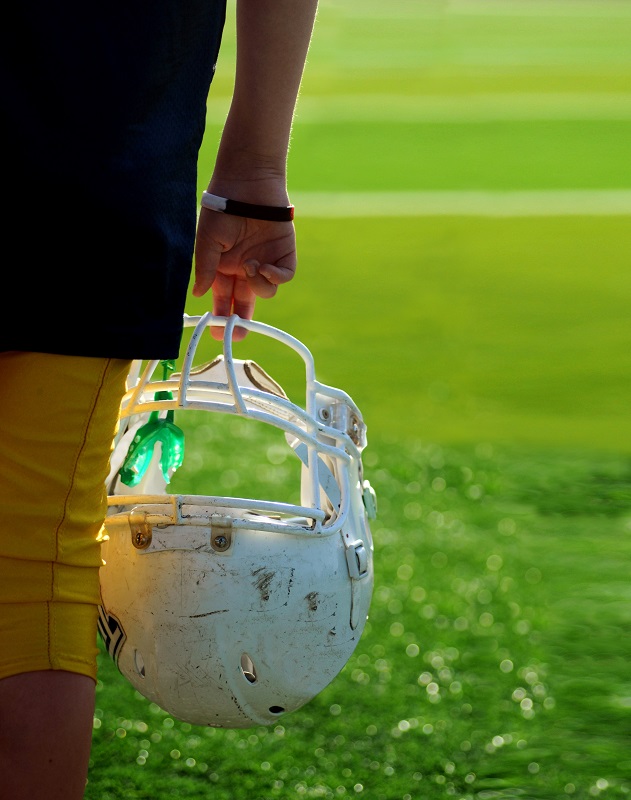
Mouthguards for Nighttime and Sports
Both occlusal (nighttime) and sports mouthguards are important pieces of dental equipment and designed to prevent damage to a patient's beautiful smile. Kneib Dentistry offers custom-made mouthguards for athletes who need to protect their mouths from impact sports such as football or hockey, as well as patients who suffer from teeth grinding (bruxism) at night.
Custom-made mouthguards are designed by a dentist and made on a cast of your teeth. They cause very little interference with speaking or breathing. They provide the best protection and fit over braces and fixed bridges. Ready-made mouthguards can be purchased at most sporting goods stores. While they are much less expensive than custom mouthguards from the dentist, they are the least effective and least comfortable option available.
Reasons to Wear a Mouthguard
While mouthguards are not mandatory equipment in all sports, their worth is indisputable. Mouthguards cushion blows to the face and neck. A mouthguard should be part of every athlete's gear, no matter the sport. Even adults or weekend athletes need to protect their smiles and preserve their health.
Some individuals unconsciously develop habits of clenching and grinding their teeth (bruxism), either while sleeping or throughout their daily life. Occlusal guards can help prevent any unintended, self-inflicted damage to one's teeth. They can even aid in the treatment of TMJ disorder and migraines. In other cases, patients who receive cosmetic treatment will also get some type of mouthguard to help protect their newly touched smile. Ultimately, mouthguards and occlusal guards are beneficial for the simple reason of protection and retention of teeth.
Mouthguard FAQs
What is a mouthguard?
A mouthguard is a custom-fitted piece of plastic to cover one or both sets of teeth to protect the mouth, teeth, and jaw from damage. There are two types of mouthguards: One for sports, and one for nighttime. A nighttime mouthguard is called an occlusal mouthguard. Mouthguards reduce stress on teeth and joints by providing cushioning, absorbing shock, and absorbing pressure.
Why is it important for me to wear a mouthguard?
Should I always wear a mouthguard?
How can I clean a mouthguard?
How can I clean a mouthguard?

